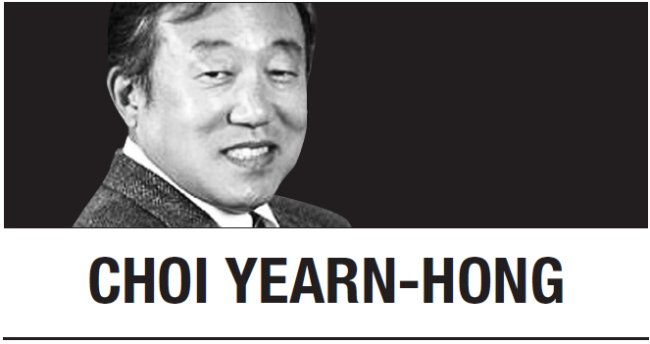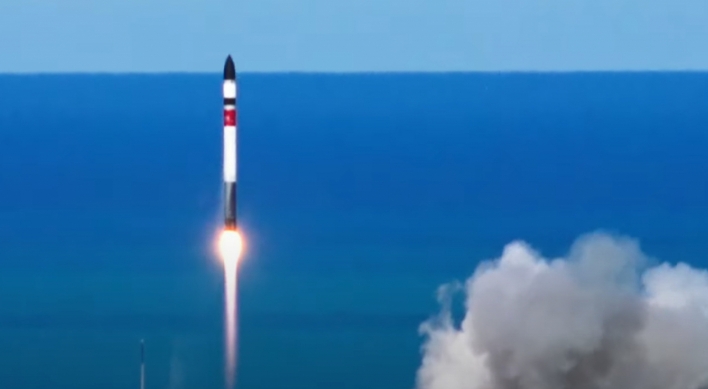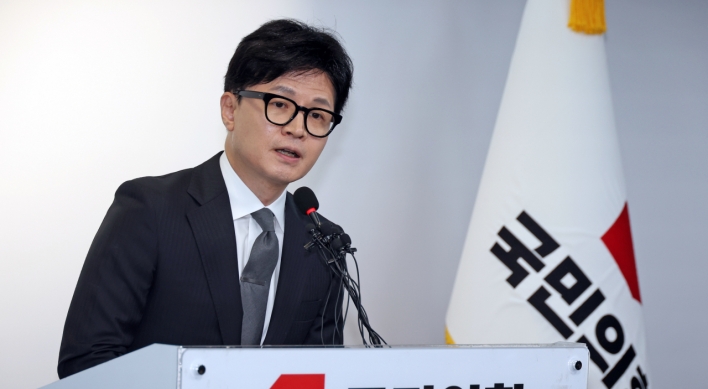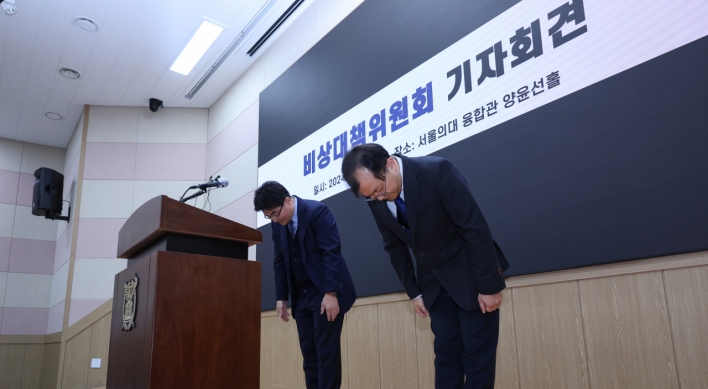[Choi Yearn-hong] ‘South Korea, US troops, and Korea’s future’
By Korea HeraldPublished : May 3, 2018 - 18:03
 The presence of the US troops in South Korea is sure to be a crucial issue in the upcoming high-level meetings: the South Korea-US summit and North Korea-US summit. Changing the cease-fire agreement into the peace agreement will certainly bring up the issue of the US troops in Korea. The US President already tweeted about a possible peace agreement from the armistice agreement of the Korean War. The US Secretary of Defense discussed this issue of US troops after the Korean summit.
The presence of the US troops in South Korea is sure to be a crucial issue in the upcoming high-level meetings: the South Korea-US summit and North Korea-US summit. Changing the cease-fire agreement into the peace agreement will certainly bring up the issue of the US troops in Korea. The US President already tweeted about a possible peace agreement from the armistice agreement of the Korean War. The US Secretary of Defense discussed this issue of US troops after the Korean summit. Two of the planned summit meetings will deal with the ending the cease-fire between North and South Korea, which was put in place ostensibly as a temporary measure, at the end of the Korean War and never replaced with a permanent peace treaty. North Korea has been demanding a peace agreement with the US; as a result of such action, the withdrawal of US troops from South Korea would be a logical next step. The present South Korean leftist regime has been quietly in agreement with this scenario.
The upcoming summit will be the forum for the brokering of a peace agreement among the three parties. The South Korean president’s national security adviser spoke about it during his most recent trip to Washington. The idea of “self-determination” will be a powerful appeal to many in South Korea.
The Nixon doctrine after the Vietnam War brought up the withdrawal of the US forces in Korea, and President Jimmy Carter planned the withdrawal as a protest against South Korean authoritarian rule in the 1970s. Recently, Trump has pointed out withdrawal of US troops from Korea as a weapon for the US trade war. Now, this issue will emerge as an important one between the US and the two Koreas in upcoming summit meetings. One way or another, the US will withdraw troops from South Korea. The question now is how and when. The timing of this move is a key question.
The issue might have been discreetly discussed at the North-South summit last month, and it will likely be brought up in the North Korea-US summit, tentatively set for May or early June. However, both sides should heed the security pact between South Korea and the US, and should be alert to the fact that South Korea will be helpless against North Korean nuclear attacks if the US umbrella is suddenly withdrawn. Once done, this withdrawal cannot easily be undone.
South Korean people seem to be in two camps about the prospect of US troop withdrawals. Some see the presence of US troops as a necessary step to deter another North Korean invasion. Others on the left want US forces out as a point of national pride. Trump should be aware of Korean nationalists: One subgroup is the so-called “leftists” and another is the so-called “intellectual” group.
North Korea seems to have suddenly guaranteed peace on the Korean Peninsula. What are we to conclude from this? It is difficult indeed to believe in promises of lasting peace after 30 years of threats and ultimatums coming from North Korean leaders. If many South Koreans are cautious, it is an understandable frame of mind.
The current South Korean president was elected in May 2017 by 41 percent of the total votes. That makes it likely that more than 41 percent of South Korean voters want US troops to be present to deter another war in Korea.
Senior Korean people, those older than age 76 or so, who experienced the Korean War are still grateful to the US troops in the South. I am 76 years old and witnessed war as a 10-year-old in South Korea. Of course, there are fewer of us elders every day who remember these times of fear and trauma that imprinted indelibly on us as children. Younger Korean people are sending a very different message these days, that there are new circumstances, and that it is time for the US troops to leave South Korea for good. Cries of “Yankee, Go Home!” which have not been very loud so far, may well be the message voiced after the South-North summit and the North Korea-US summit.
There are other considerations to be weighed in a North-South peace pact. North Korea will undoubtedly demand an enormous monetary compensation package in exchange for denuclearization efforts; I have heard the price tag may be $600 million annually for 10 years. The deal could be expensive, and after all the money is spent, there is still no guarantee of permanence.
What will be the US response to an explosion of Korean nationalism that may happen with the prospect of a peace deal? If the South Korean people pressure their government to expel US troops, the US will withdraw them. There is no other choice. The US cannot justify its presence if its ally South Korea objects to the presence of its troops on Korean soil.
However, if this is to happen, I believe it is important enough to deserve a national referendum. Such a significant political and military decision should not be decided by a presidential order, as Moon’s adviser indicated while in Washington. South Koreans must soberly consider whether its troops can take on a military defense against North Korea, should it be necessary.
This idea is not particularly new. Previous left-leaning regimes in South Korea have made the same plans, even setting a timetable to transfer the power of the US commander in South Korea to a South Korean general. The last time such a plan was in place, it was nullified when a right-leaning president won the election.
If and when the US military is out of South Korea, it is arguable that the US would be relatively freer in making a decision for pre-emptive military action against North Korea, such as a strike on its nuclear bases. In the past, South Korea has been an obstacle to US military decision-making. For example, former US President Bill Clinton had once decided to strike a nuclear development installation during the early stages of North Korea’s nuclear program, only to be dissuaded by then-South Korean president Kim Young-sam, because Kim feared North Korean retaliation on the South.
Trump has talked of a “bloody nose” strategy, and it is possible that this threat has been enough to bring North Korea to the table for denuclearization talks. However, North Korea has, in the past, broken agreements and has secretly developed nuclear arms and long-range missiles. I hope the Panmunjeom Declaration will be in the dramatic action planning soon.
There is plenty of uncertainty to go around. The US and South Korea should not be quick to withdraw US troops from Korea. If withdrawal is imperative, gradual withdrawal is a sounder plan. At last, the US-Korea alliance should not be given up in order to balance China and Russia in the East Asian theater. Both sides should proceed with the utmost prudence and caution in discussion of such a grave issue.
Choi Yearn-hong
Choi Yearn-hong is a retired Korean-American political scientist living in Northern Virginia. He was an assistant for environmental quality in the US Office of the Secretary of Defense, 1981-83. -- Ed.
-
Articles by Korea Herald



![[Exclusive] Korean military set to ban iPhones over 'security' concerns](http://res.heraldm.com/phpwas/restmb_idxmake.php?idx=644&simg=/content/image/2024/04/23/20240423050599_0.jpg&u=20240423183955)

![[Graphic News] 77% of young Koreans still financially dependent](http://res.heraldm.com/phpwas/restmb_idxmake.php?idx=644&simg=/content/image/2024/04/22/20240422050762_0.gif&u=)




![[Pressure points] Leggings in public: Fashion statement or social faux pas?](http://res.heraldm.com/phpwas/restmb_idxmake.php?idx=644&simg=/content/image/2024/04/23/20240423050669_0.jpg&u=)









